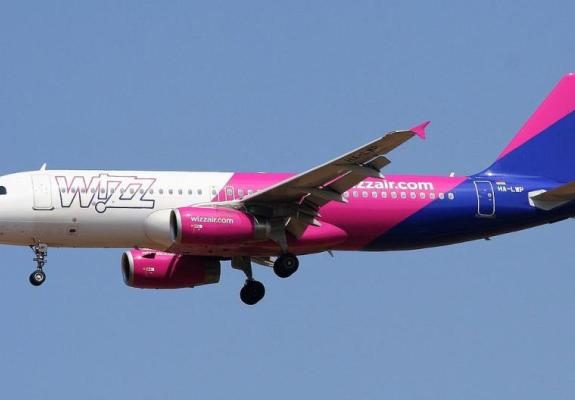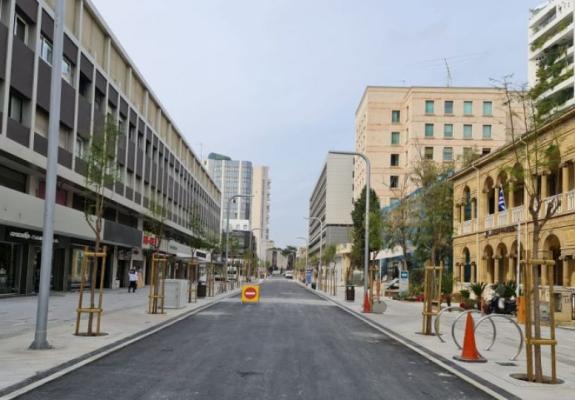LNG Terminal Case: Growing Shadows and Questions - State Officials' Responsibilities in Focus
The Odyssey of a Project 'Not Destined' to be Completed on Time
Over the past month, Cyprus has been embroiled in the shadowy affair of the Vasilikos LNG terminal. This interest was sparked when the Republic's Audit Office released a detailed report on the conditions under which the contract related to the project was signed - a process described by the Audit Office as "completely contrary to the public interest."
The Audit Office attributed serious responsibilities to the awarding authority of the tender, the Natural Gas Infrastructure Company (ETYFA), a subsidiary of the Natural Gas Public Company (DEFA), of which the Republic of Cyprus is the sole shareholder.
Partially funded by EU funds, the project has faced numerous delivery delays (according to the terms, the Consortium was required to complete all infrastructure within 24 months from the start date of the project's construction), significantly increasing costs for Cypriot taxpayers. As recently confirmed by Energy Minister Giorgos Papanastasiou in Parliament, only 45%-50% of the land terminal has been constructed to date.
Taking into account the project's trajectory, it is not expected to be completed even by 2025. Moreover, CPP-METRON Consortium Ltd is claiming an additional 200 million euros for the project in its ongoing legal dispute with the Republic of Cyprus.
The questions arising from this case are of major importance: What went so wrong that the project is not only incomplete, but also places the Cypriot State against the wall with increasing costs due to delays? Was there, and to what extent, negligence by the responsible officials during the tender process and the subsequent contract signing with the consortium?
Concerns about the procedures followed were further fueled by a letter from the then Accountant General of the Republic, Rea Georgiou, to the then Chairman of DEFA, Symeon Kassianidis, dated November 15, 2019, which recently came to light.
According to the letter, the Treasury, the highest authority for public contracts, reported to DEFA that the evaluation process followed practices "not in line with the regulatory framework of public contracts and were far from best practices."
As an example, the former Accountant General mentioned that the submitted participation guarantees did not comply with the terms of the tender documents. She pointed out to DEFA that it had "not exercised the due diligence required for a project of such magnitude, ensuring that the results, with full transparency, were indisputable."
A letter from the Legal Service in December 2019 adopted a more reassuring stance on the issues raised by the Accountant General and the Audit Office. It emphasized that the opposing parties did not appeal to the Tender Review Authority or the Administrative Court after the award of the contract to CPP-METRON Consortium Ltd, as they did not identify any impediments in the process.
In another relevant memo, this one from the Cyprus Hydrocarbons Association, submitted in a recent session of the parliamentary Control Committee, the Association describes a series of mistakes and mismanagements in the contract agreement with the consortium on behalf of the Republic of Cyprus.

Despite the concerns expressed in writing since 2019 by both the Audit Office and then Accountant General, the awarding authority of the tender, ETYFA, a subsidiary of DEFA, proceeded with the contract award to the consortium.
If the issue of the LNG terminal construction warrants judicial investigation, further clarifications might be sought from the then leadership of the Ministry of Energy, as the supervisory political authority of DEFA-ETYFA. This development would also implicate the then government, since the relevant decisions were approved by the Cabinet.
What is certain is that the excessive cost, the project's incompletion, and the continuous extensions for its delivery do not create favorable conditions for the energy sector. Under normal circumstances, the LNG terminal would already be operational, relieving Cypriot citizens and the public treasury of tens of millions of euros in pollution costs (greenhouse gas emission allowance trading system), enhancing the country's role in the energy field of the Eastern Mediterranean, and potentially sparing the Republic from a case in which shadows and questions only continue to grow.






